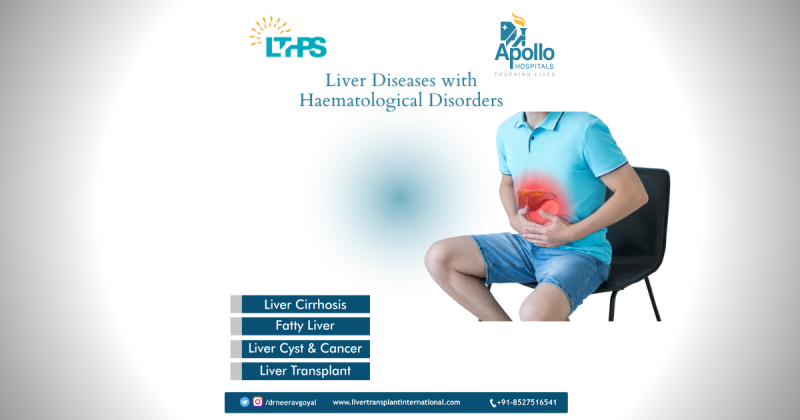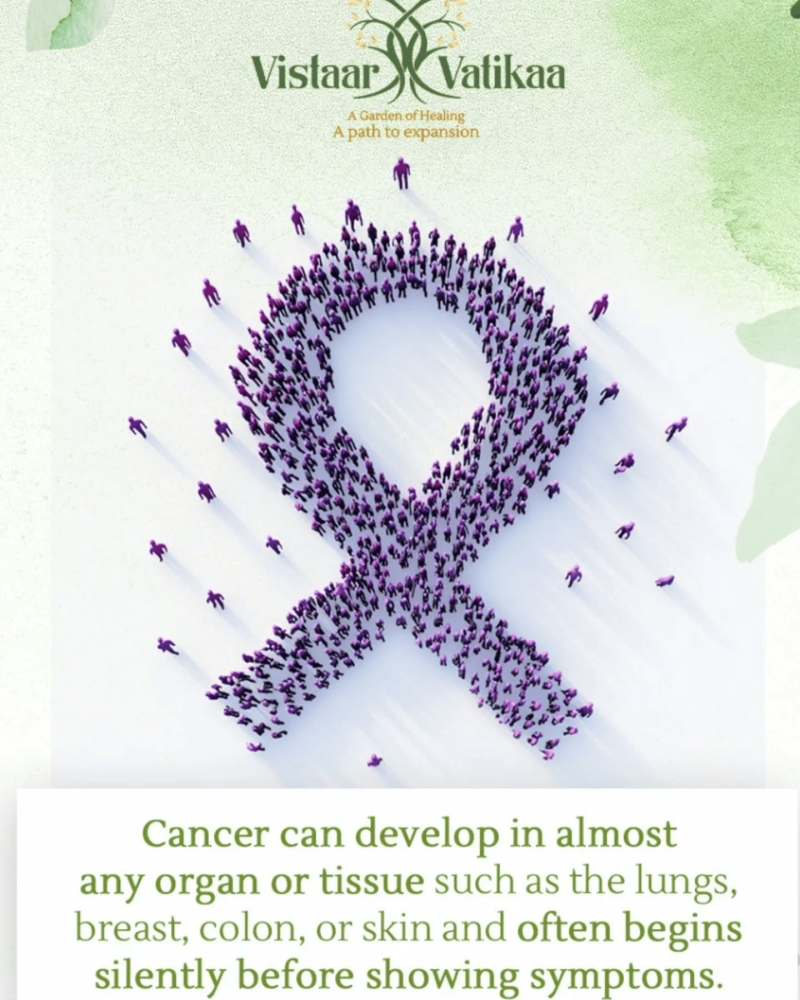Health
Liver Diseases with Haematological Disorders

Introduction
Have you ever wondered how your liver and blood are connected? Most of us think of the liver as just the body’s filter and the blood as the life-force that flows through our veins. But did you know they are deeply intertwined? When liver problems occur alongside blood disorders, it’s like a double whammy for your health. Let’s dive into this fascinating yet critical topic in simple terms, and uncover why understanding it matters to you.
Learn about liver diseases linked to blood disorders and when to consult a liver transplant specialist in India for the best care.
1. What is the Liver and Its Role in the Body?
Think of your liver as the body's powerhouse. It's the second largest organ after your skin and performs over 500 functions! From detoxifying harmful substances to producing essential proteins and aiding digestion, the liver is indispensable. Without it, waste builds up, and your body suffers.
2. Understanding Haematological Disorders
Haematological disorders are health issues related to your blood. This includes problems with red blood cells, white blood cells, platelets, or plasma. Imagine your blood as a river flowing through your body, delivering nutrients and oxygen. Any obstruction or problem in this river can cause serious health issues.
3. How the Liver and Blood Work Together
Did you know your liver produces key proteins necessary for blood clotting? It also helps manage iron storage and breaks down old red blood cells. So, when the liver struggles, blood disorders often follow.
4. Common Liver Diseases Linked to Blood Disorders
Here are some common liver problems often seen with haematological disorders:
Cirrhosis
Hepatitis B and C.
Liver Cancer.
Fatty Liver Disease.
Each of these can have a ripple effect on your blood health.
5. Cirrhosis and Its Haematological Impacts.
Cirrhosis is like a slow poison that scars the liver over time. This scarring affects the liver's ability to produce clotting factors, leading to bleeding disorders. Patients often develop thrombocytopenia, a condition where platelet counts drop dangerously low.
6. Hepatitis and Blood Abnormalities.
Chronic hepatitis B and C infections not only damage liver cells but also disrupt the production of blood components. This can lead to anaemia (low red blood cell count) and leukopenia (low white blood cell count), weakening your immune system and causing fatigue.
7. Liver Cancer and Haematological Issues.
When liver cancer develops, the liver's ability to filter blood diminishes. This can cause coagulopathy (problems with blood clotting) and increase the risk of internal bleeding. It's like trying to plug a leaky dam-- impossible without proper support.
8. Blood Clotting Problems from Liver Dysfunction.
One of the most critical connections between liver disease and blood disorders is blood clotting. The liver produces clotting factors essential to stop bleeding when you get injured. In liver disease, these factors decrease, making even minor cuts a potential danger.
9. Anaemia in Liver Disease Patients.
Anaemia is surprisingly common in liver disease patients. It happens because the liver can't produce enough of the proteins required to maintain healthy red blood cells. As a result, patients feel tired, weak, and short of breath-- not something you want to ignore.
10. Thrombocytopenia and Liver Health.
Thrombocytopenia refers to low platelet counts and is frequently seen in advanced liver diseases like cirrhosis. Imagine trying to fix a leaky pipe with fewer workers-- fewer platelets mean your blood can't clot properly, increasing the risk of severe bleeding.
11. When Is a Liver Transplant Needed?
Sometimes, medical management isn't enough. In cases of severe cirrhosis, liver failure, or cancer, a liver transplant becomes the only option. But how do you know when it's time? Symptoms like uncontrollable bleeding, severe jaundice, or hepatic encephalopathy often indicate the need for a transplant.
12. Role of a Liver Transplant Specialist in India.
When facing complex liver and blood disorders, a liver transplant specialist in India becomes your best ally. These experts assess your condition carefully, plan the transplant, and manage both liver and haematological aspects. India is renowned for experienced liver transplant specialists who provide world-class care at affordable costs.
13. Preventive Tips for Liver and Blood Health.
Want to keep your liver and blood in top shape? Here are some simple tips:.
Eat a balanced diet rich in fruits and vegetables.
Avoid excessive alcohol intake.
Get vaccinated against Hepatitis B.
Stay active and maintain a healthy weight.
Have regular medical check-ups.
14. When to See a Doctor?
Don't wait until it's too late. Consult a doctor if you notice:.
Unusual bruising or bleeding.
Persistent fatigue.
Yellowing of skin or eyes (jaundice).
Swelling in legs or abdomen.
Dark urine or pale stool.
Early detection can make a huge difference.
15. Conclusion and Key Takeaways.
Understanding the link between liver diseases and haematological disorders is not just for doctors-- it's for all of us. The liver and blood are like best friends working in tandem to keep you healthy. When one struggles, the other suffers. If you experience unusual symptoms, don't hesitate to consult a liver transplant specialist in India. Proper care and timely intervention can make all the difference.
Frequently Asked Questions (FAQs).
1. Can liver disease cause blood disorders?
Yes, liver disease can lead to various blood disorders, including anaemia, thrombocytopenia, and coagulation problems due to impaired liver function.
2. What symptoms indicate a liver problem affecting blood?
Symptoms like easy bruising, unexplained bleeding, jaundice, fatigue, and swelling are common signs of liver problems affecting blood health.
3. When should I consult a liver transplant specialist in India?
Consult a specialist when liver function is severely compromised, causing life-threatening symptoms like uncontrollable bleeding, severe jaundice, or liver failure.
4. Is a liver transplant the only solution for advanced liver disease?
While a transplant is often necessary in severe cases, doctors may also manage early stages with medication, lifestyle changes, and regular monitoring.
5. How can I prevent liver and blood disorders?
Maintain a healthy lifestyle, avoid excessive alcohol, get vaccinated against hepatitis, eat nutritious food, and have regular medical check-ups.
Understanding liver diseases and their connection with blood disorders helps you take control of your health. Keep yourself informed, act early, and consult experts like a liver transplant specialist in India for the best care.
Source:
Click for the: Full Story
You might like













 Close Menu
Close Menu